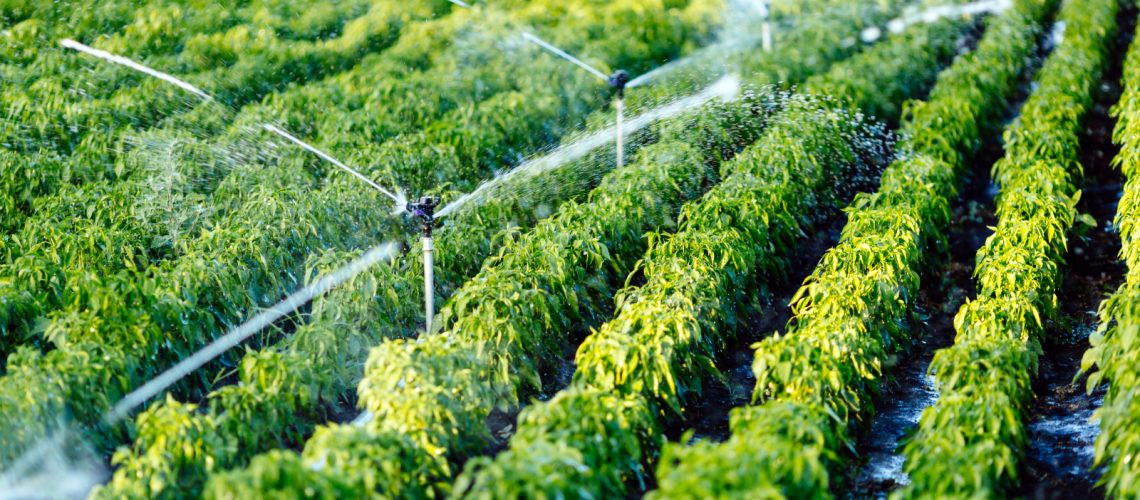Many farmers extensively use irrigation methods to enhance crop production. A report by the University of Florida indicates that more than two million acres of cropland in Florida are irrigated due to low water-holding capacity soils and uneven rainfall distributions, despite large annual rainfall amounts.
However, you need to regularly maintain your irrigation system for it to keep watering your crops. So let’s look at some of the best practices you can apply to maintain your irrigation system. The techniques include the following:
1. Ensure Regular System Audit
Invite a qualified specialist to audit your irrigation system at least twice a year. However, ensure the specialist is certified by the Irrigation Association and understands the fluctuating water needs of your landscape to ensure efficiency in your irrigation system.
Late winter that begins from January through March is usually the best time to schedule your spring audit so that you are ready for spring, knowing that your irrigation is prepared to handle the required task.
Nevertheless, don’t skip your system inspection because you are late. Instead, consult a professional as soon as you realize any problem with your system.
During the irrigation system audit, the specialist will check:
- Sprinkler heads and rotors: To avoid possible damage by freezing water. The expert will carefully review the heads and rotors to ensure they work efficiently. Also, note that sprinkler heads have a certain life span, and so you need to replace the defective ones with new ones for efficiency. Finally, fix the heads properly to avoid wastage of water.
- The pipes and lines: To fix possible cracks and leaks to avoid wastage and cost of water. Leakages can also cause uneven watering, killing many crops.
- The controller setting: To ensure they conform to your landscape. Controllers help in regulating the amount of water during irrigation to avoid wastage of water. The new controller technology allows farmers to control the water by rainfall, landscape, zone, and season.
Zones need different amounts of water based on the sun, shade, and type of soil. In addition, plants have other water requirements in different seasons, and watering at the same rate can cause overwatering, killing the crops.
2. Flush the System
You need to flush your irrigation system to clear the buildup of debris in the irrigation system to ensure efficient water flow throughout the system. Most irrigation systems are designed with laterals and valves that allow adequate flushing velocity to remove any buildup.
The flush water and contaminants are released from the system through the flush ports during the flushing process. Farmers may also use chemicals to break down and clear biological clogging.
Irrigation systems provide a conducive environment for bacteria, algae, and fungi that cause slime buildup. Experts indicate that bacterial slime is a direct cause of the clogging of drippers. It also causes mineral particles to stick together and form large buildups that clog emitter openings. The bacterial slime is standard in water containing magnesium, iron, and sulfide minerals.
3. Ensure Smart Technology Works Properly
Innovative technology such as smart water controllers helps regulate water applied to your landscape based on actual rainfall. Using weather-based data from the local weather station, you can save up to 20% to 50% of your irrigation water based on real-time rain in your area.
The Smart water controller can adjust based on the daily weather, type of soil, type of plant you are watering. Some even provide site-specific weather adjustments to allow farmers to reduce the risk of overwatering their crops.
4. Replace traditional irrigation systems
Replace the traditional irrigation system with more efficient drip irrigation. The drip irrigation contains bubbler irrigation, micro-sprinklers, and micro-spray jets that make it more efficient for irrigating plants with slow and direct water applications to the roots, runoff and minimizing evaporation. You’ll be surprised by what new technologies in irrigation can offer.
5. Keep in Touch With the Professionals
Every irrigation system needs regular maintenance, and how you treat your system will determine its longevity. You can always do the standard checks, but if trouble occurs, you’re not alone. Experts are there to help. With the help of an irrigation systems expert, you can rest assured that your system operations are in good hands. From installation, repairs, and routine maintenance, a professional will make sure your irrigation system rises to the occasion every time you need it.
At Southwest Florida Service and Supply, we have over 50 years of experience in system installation, renovation, and repair, and we’re always ready to assist. Contact us on (239) 657-2429 or get a quote today.

